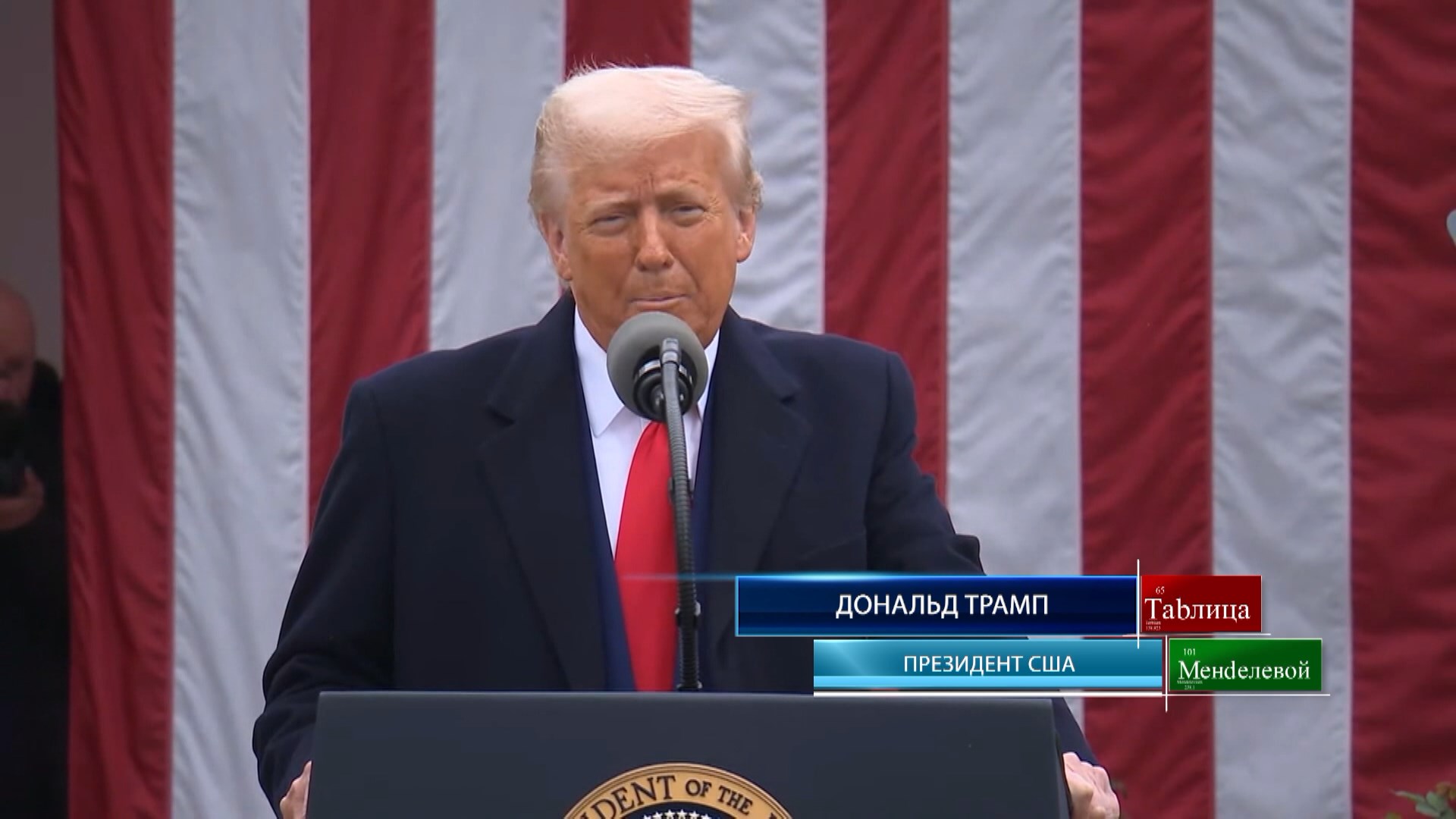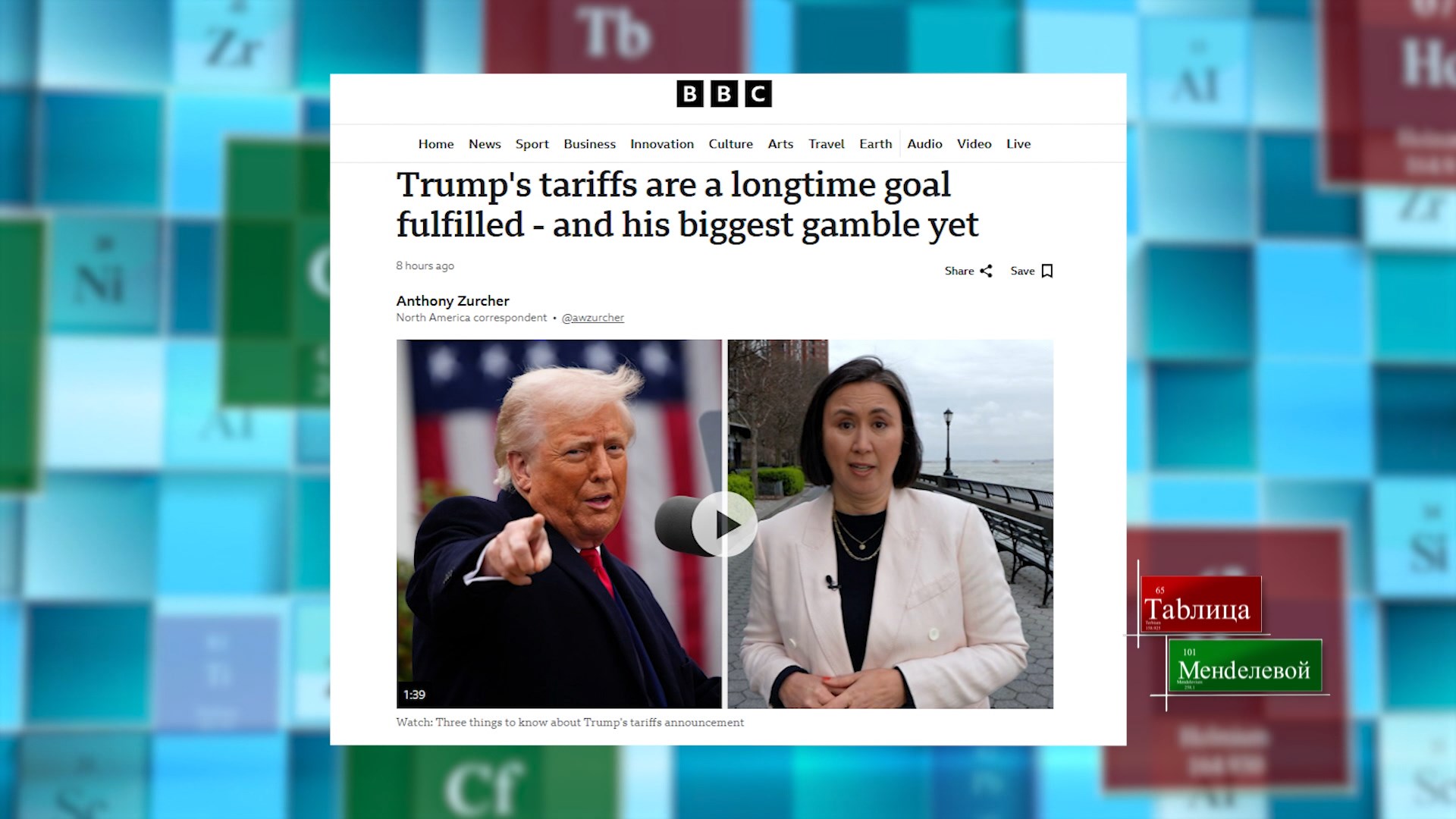3.69 BYN
2.99 BYN
3.51 BYN
How Trump Launched the Promised Comprehensive Tariff War
Experts warn that if America’s trading partners refuse to make concessions and instead retaliate, the U.S. GDP could contract by one to two percent as early as next year.
Donald Trump refers to April 2 as "America's Liberation Day from free-riders." On this day, the White House announced the harshest tariffs in a century, imposing customs duties on goods from 185 countries. Notably, Belarus and Russia did not appear in the published reports. Among former Soviet countries, the highest tariffs—over 30%—were imposed on Moldova, with 27% for Kazakhstan and 10% for Ukraine. For several countries, these measures will take effect starting April 9. Washington claims these actions are necessary to revitalize the U.S. economy, asserting that America has been "robbed by other countries." This is an attempt to revive the "American Dream."

Donald Trump, President of the United States:
"We once had an American Dream, which is talked about less and less. We spoke about it four years ago, and now. For many years and even decades, you have not been reminded of it. Our country and its taxpayers have been robbed for over 50 years, but that will no longer happen. It will not happen again."
The new measures risk resulting in a "requiem for the dream." Global markets are in a state of free fall, with the BBC calling Trump's tariffs the culmination of a long-held goal and his biggest gamble. Apple’s shares plummeted by 7.5% in after-hours trading, as some of the highest tariffs apply to countries where the technology is assembled: Vietnam, China, and India. Nike futures also saw a significant drop because about 50% of the company’s products are made in Vietnam. Overall, betting agency Polymarket assessed the probability of a recession in the U.S. at 50%.
Paul Wiseman, Journalist (USA):
"Experts are very skeptical. They believe that tariffs raise prices and decrease economic efficiency. Tariffs harm American companies that must import equipment to produce their goods. Ultimately, their costs rise, making them less competitive on the global market."
A global price increase is expected, especially in sectors reliant on imports. However, the U.S. Treasury Secretary urged other countries to take a deep breath and refrain from immediate retaliatory measures.
Scott Basset, U.S. Treasury Secretary:
"The history of trade shows that we are a country with a deficit. A deficit country has advantages over countries with surpluses. Traditionally, surplus countries always lose in any trade escalation."
Both friends and foes find themselves caught under the tariffs. Yet, the reaction has been largely similar: they will fight back. Promising a "golden age" for America, Trump placed restrictions on even the closest allies. The European Union, which has already felt the brunt of 20% tariffs, has promised a response. As clarified by the newspaper El País, there are no red lines for Brussels. In addition to symmetrical measures, the European Commission may close the EU market to certain American goods and services.

A significant blow has been dealt to China, where tariffs amounted to 34%. According to the Chinese Ministry of Commerce, Trump's approach disregards the balance of interests achieved over many years, relies on subjective evaluations, and does not conform to international trade rules. Even the birds have been hit—the tariffs have been imposed on uninhabited Heard and McDonald Islands in the Pacific, which are home only to penguins.
Countries and peoples have long fought each other for trading advantages. In the 17th century, England, France, and the Netherlands engaged in nearly continuous trade wars, which sometimes escalated into bloody conflicts. Now, the axe of trade war has been dug up once again.















